Memo Published May 12, 2023 · 5 minute read
Why Republicans Can Win with their Base—but Democrats Can’t
Lucas Holtz
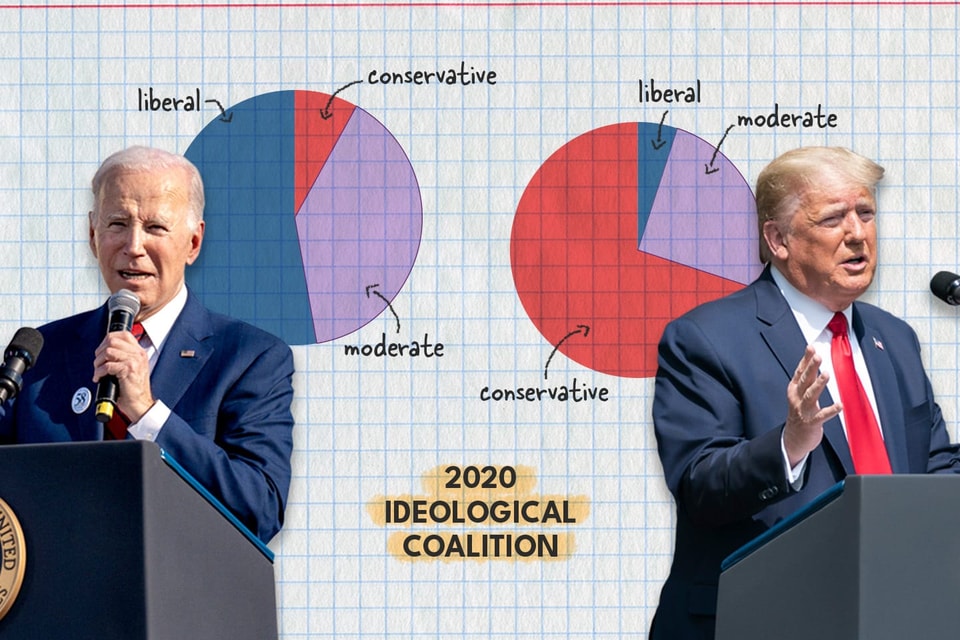
Takeaways
- There is an asymmetry in the electorate makeup—Republicans must only appeal to a conservative base and a small share of moderate voters in order to win the presidency, while Democrats have to win a much larger share of self-identified moderates.
- In 2020, voters who identified as “very conservative” made up nearly one-third of Donald Trump’s coalition in every single battleground state. Meanwhile, voters who identified as “very liberal” made up only around 20% of Joe Biden’s coalition in the battleground states.
- Conservative voters comprised significantly larger portions of Donald Trump’s coalition in the battleground states (66% to 75%) than liberal voters comprised of Joe Biden’s coalition (46% to 53%).
- In every election over the last 40 years where Democrats have garnered the support of 60% or more of moderate voters, they have won the presidency.
The Democratic and Republican electoral coalitions are not symmetrical. Election after election, ideological conservatives have comprised a larger segment of the Republican Party’s coalition than liberals have in the Democratic coalition. Because liberal voters make up the smallest ideological bloc in a presidential electorate, Democratic presidential candidates must win a supermajority of voters who lie directly in the center of the ideological electorate—moderate voters.
Analyzing the electorate by ideological identification has drawbacks. Research has shown that Democratic voters who identify as moderate may support some “liberal” policies, despite how they identify themselves. We argue that campaigns should pay attention to voters’ ideological identification nonetheless. Even if someone supports some progressive views, the fact that they identify as moderate speaks to their values and the ways campaigns should make their appeals. Republicans have an easier job compared to Democrats; their voters share similar values and policy preferences, and comfortably identify with the conservative brand.
Asymmetry of Liberals vs. Conservatives
Because conservatives make up a larger portion of the electorate than liberals do, Republicans don’t have to look far beyond their conservative base to win elections. Democrats, meanwhile, have a much tougher and more diverse path to winning.
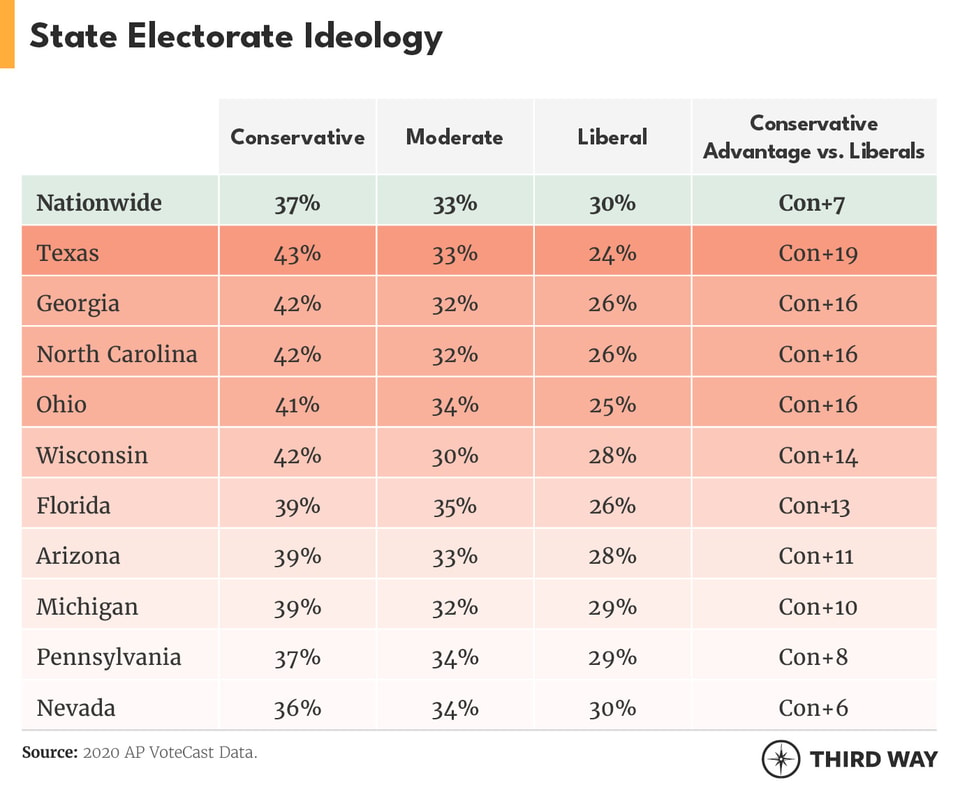
There is no battleground state in which liberal voters make up a majority or a plurality of the electorate. And liberal voters make up a smaller share of the electorate in nearly every battleground state relative to the national average. In 2020, conservatives and moderates made up the largest ideological groups of voters, and there is no indication we will see a different electorate in 2024.
Despite this fact, there is a constant stream of pundits that clamor about both parties’ bases being equally extreme and influential. This claim ignores all empirical evidence. In 2020, voters who identified as “very conservative”—i.e., the most MAGA right-wing—made up nearly one-third of Donald Trump’s coalition in every single battleground state. Meanwhile, voters who identified as “very liberal”—i.e., the most left-wing progressives—made up only around 20% of Joe Biden’s coalition in the battleground states.
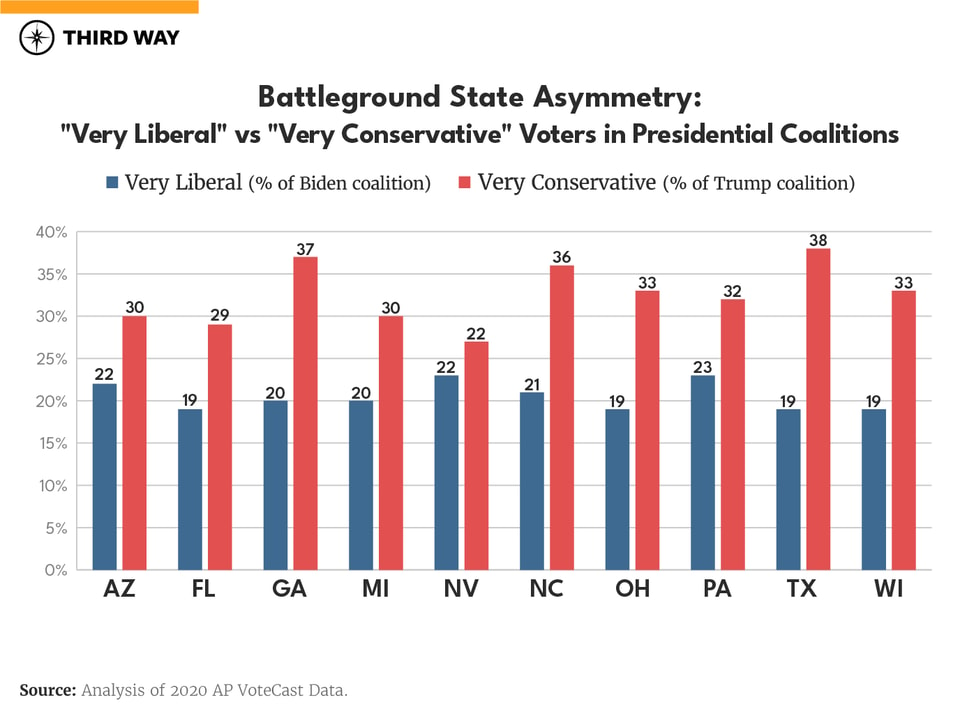
When we look at those voters who identify as liberal or conservative at all (very/lean combined) we see that conservative voters comprised significantly larger portions of Donald Trump’s coalition in the battleground states (66% to 75%) than liberal voters comprised of Joe Biden’s coalition (46% to 53%).
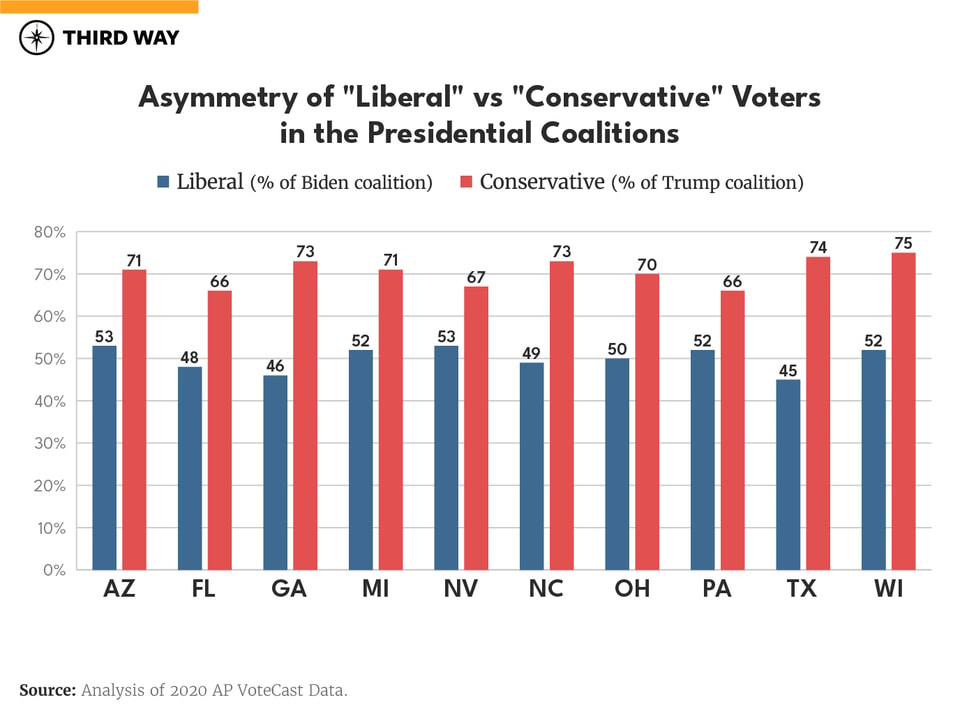
Conservatives, particularly far-right MAGA conservatives, simply dominate the Republican coalition and have an incredible amount of electoral vote leverage compared to the liberal progressive bloc’s leverage in the Democratic coalition.
The power of the MAGA far-right in the GOP’s coalition is the very reason that Republicans have been tacking further and further to the right in rhetoric and policy, as it becomes a necessity to survive a primary. The inverse is true for Democrats, as moderate voters make up a significantly larger share of the Democratic presidential coalition than they do in the GOP coalition, they serve as a moderating force on the choice of the nominee and the policies they pursue.
The Moderate Vote
Due to these asymmetries, President Biden and his party cannot just win a bare majority of moderate voters if they hope to win the presidency in 2024—it is imperative for Democrats to win a supermajority of moderate voters. Since 1980, Democrats have only managed to win a single presidential election when they did not have a supermajority of moderate voters nationwide—and even in that anomalous year, they won 56%.
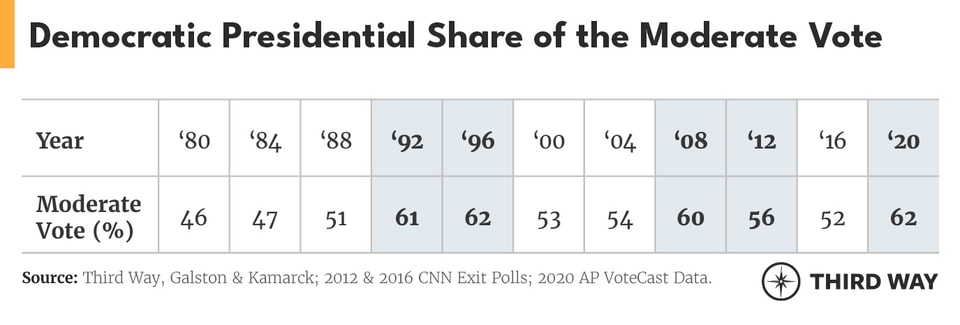
In 2020, moderate voters broke for Biden 62%-36%, and Biden won a supermajority of moderate voters in every battleground state that he flipped from red to blue. When it came to the composition of each presidential candidate’s coalition in 2020, moderate voters made up 39% of Biden’s ideological coalition nationwide, while they only comprised 25% of Trump’s coalition. Furthermore, moderate and conservative voters combined made up nearly half of Biden’s coalition in 2020. In other words, 7 in 10 Trump voters were self-described conservatives, while liberals made up only half of the voters who pulled the lever for Biden.
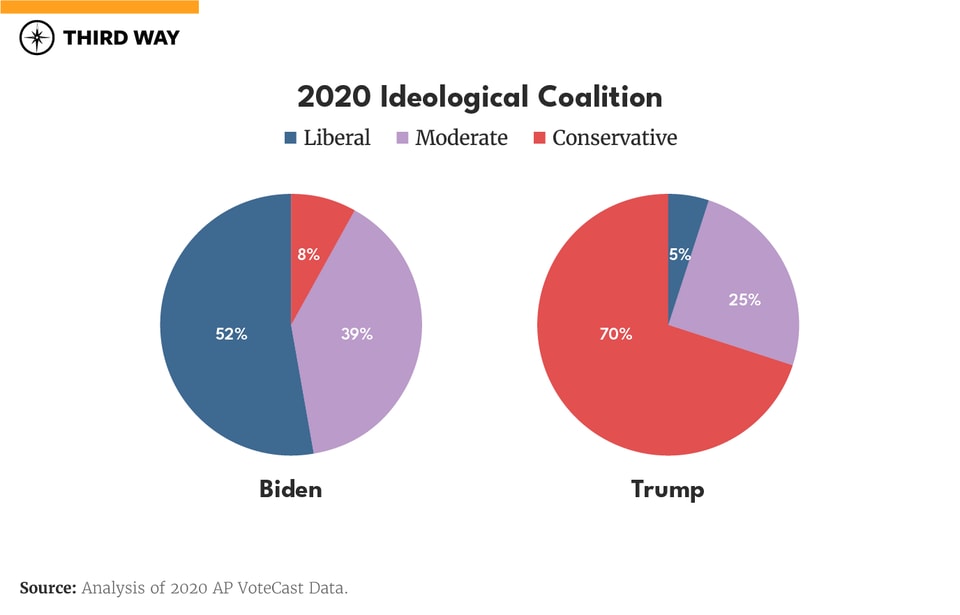
Conclusion
Given the asymmetry of our electoral coalitions, the Republican nominee for president has a distinct ideological advantage in every battleground state among conservative voters compared to President Biden’s map with liberal voters. The burden is significantly larger for Democrat’s to keep their coalition together, as the GOP will be looking to divide Biden’s coalition and will only need to appeal to a sliver of the moderate vote in order to reach the White House. If the 2024 electorate looks anything like what it did in 2020, then the math is simple—President Biden will need a supermajority of moderate voters to win his re-election campaign. Anything less may result in a Republican victory.
